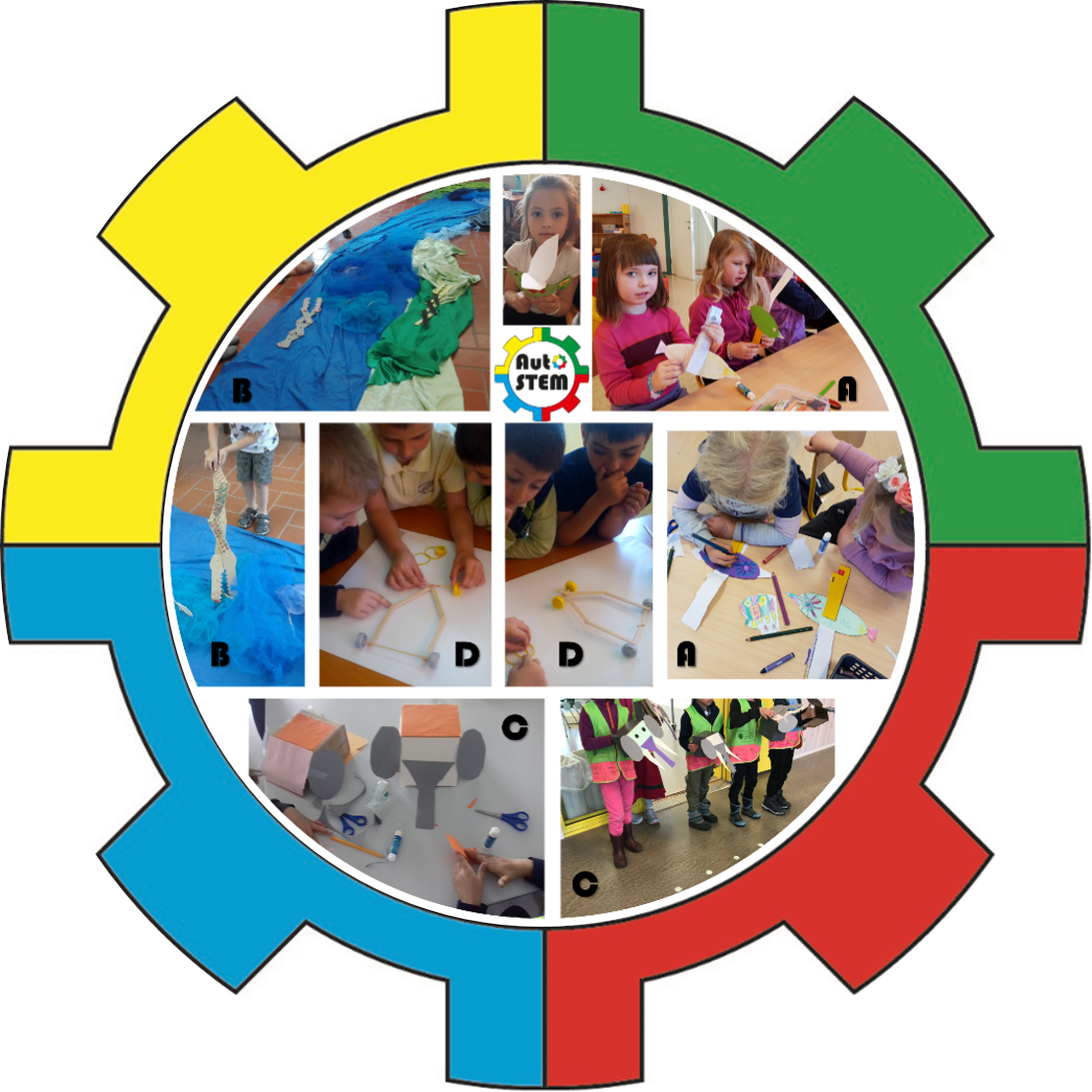The children experience an automaton by playing with it or by building it. Experiencing, however, is not merely doing. Many of our everyday activities and experiences are routine, automatic, and habitual and do not change our behaviour, beliefs, or understanding. Here-and-now experiencing, however, can initiate learning when it “violates the expectations of previous convictions and habits of thought.” Learning gained from experiences depends, among others, on the affordances of the investigated objects (here: the automata) and features highlighted through communication. In the pedagogical guidelines and construction instructions for our automata, we describe which features you may highlight to foster STEM learning.
Experiencing is not limited to the activity phase. It can happen in every part of the learning cycle (Kolb & Kolb, 2018). When exchanging reactions and observations, you can experience that others had similar experiences as you had. While discussing patterns and dynamics, you can have an aha experience, that is, a sudden insight when you discover an underlying pattern. Reaching a conclusion when generalising the pattern is an experience of thought. Finally, when applying your insight to a new situation, you will experience the consequences.

